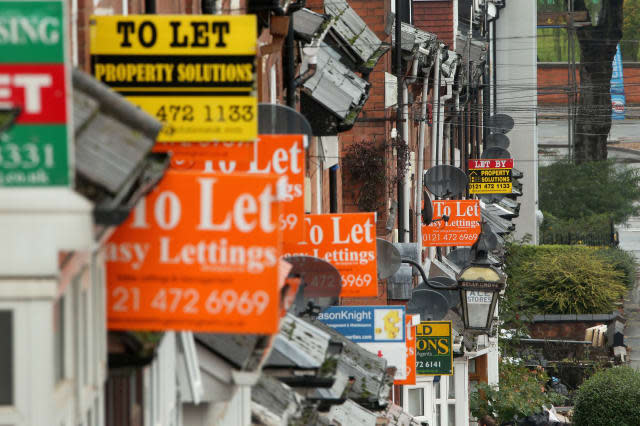Homeownership lowest since 1986

Homeownership in England has fallen to its lowest level in 29 years, with 63% of households now classed as owner-occupiers, government figures show.
And in 2013/14, the number of households who own their home outright with no mortgage overtook the number of home-owners who have a loan, according to the English Housing Survey data.
Among England's estimated 22.6 million households, the proportion who are home-owners has been shrinking over the last decade.
The latest figures show that of the 63% or 14.3 million households who are owner-occupiers, 7.4 million own their home outright and 6.9 million own their home with a mortgage. This marks a shift in the balance compared with 2012/13, when equal proportions of households owned their home outright and with a mortgage.
Compare mortgage rates
Campaigners said the figures show the country is in danger of "winding back the clock on homeownership", and edging closer to becoming a nation of renters.
Social housing steady
In 2013/14, 19% of households, or 4.4 million, were renting privately, up from 18% a year earlier. The proportion of households renting social housing remained steady at 17%, or 3.9 million.
The proportion of all households in owner-occupation increased steadily from the 1980s to 2003 when it reached a peak of 71% before going into decline.
The last time that owner-occupation levels were lower was in 1985, when they were at 62%.
People aged between 25 and 34 are now more likely to be renting privately than buying their own home.
The proportion of young people in this age group who are privately renting has more than doubled since 2003/04, with almost half (48%) of all households where people are aged 25 to 34 renting privately in 2013/14, according to the data. Over the same 10 years, owner-occupation levels in this age group have fallen from 59% to 36%.
Compare mortgage rates
David Orr, chief executive of the National Housing Federation, said: "People in their thirties are seeing their chance of homeownership slip through their fingers as they struggle to save for the enormous deposits and mortgage payments, no matter how hard they work.
"As house prices continue to rise, we're in danger of winding back the clock on homeownership, with only the privileged few having any hope of affording it."
The report said that the introduction of buy-to-let mortgages by lenders is among the factors which have helped strong growth in the private rental sector.
More first-time buyers
Meanwhile, the Right to Buy scheme has encouraged social tenants to buy their home at a discounted price since the 1980s, paving the way for the proportion of households in the social sector to fall from 31% in 1980 to 19% in 2000.
The Council of Mortgage Lenders (CML) recently reported that more people in the UK took their first step on the property ladder last year than at any other time since 2007.
But as house prices have seen some sharp increases in recent months, a report from the Office for National Statistics (ONS) has shown that someone trying to get on the property ladder typically faced paying 9.5% more for a property in December than they would have done a year earlier.
Stricter rules were also introduced last April, which mean that mortgage applicants are facing more detailed questions about their spending habits. The Mortgage Market Review (MMR) rules were introduced to stop people taking on debts that they cannot afford.
Homeownership 'a distant dream'
Recent research for the National Housing Federation among more than 1,000 private renters across Britain found that two-thirds (63%) of people aged between 25 and 44 in this sector thought they would have bought their own home by now. Of all private renters, the majority (56%) said they had rented for longer than planned because they have no alternative.
Charity Shelter described the government figures as "a sign that we are moving closer to becoming a nation of renters".
Shelter chief executive Campbell Robb said: "These figures confirm what millions of people across the country are already feeling: a home of their own has become a distant dream, no matter how hard they work or save.
"The shortage of affordable homes is leaving young adults with no choice but to remain stuck in their childhood bedrooms, or face decades paying out dead money to landlords. This can't go on."

Property stories on AOL
Wealthy house-hunters spurn Knightsbridge for Chelsea
Nightmare new home gets its own Twitter account
Grandmother loses fight to save her house from Tesco development
%VIRTUAL-DealsCategoryWidget%



